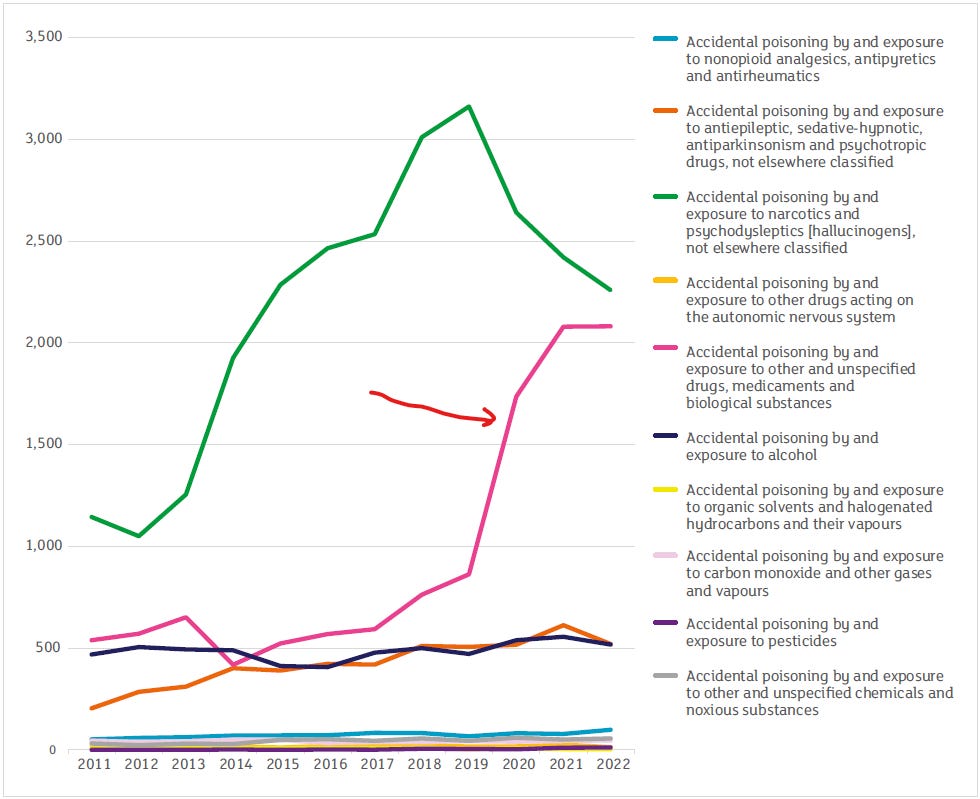In the aftermath of the COVID-19 pandemic, our understanding of health has shifted in unexpected ways. While much of the focus remains on the virus itself, its long-term impacts on our bodies, particularly the liver, are coming into sharper focus. A recent report from the Royal Society for the Prevention of Accidents highlighted a troubling rise in accidental poisoning deaths, including those related to common over-the-counter medications.
As a physician focused on autoimmunity and the lingering effects of COVID-19, I believe this trend is not a coincidence. Instead, it may point to an underappreciated link between the pandemic and how our bodies process medications.
The Alarming Rise in Accidental Deaths
The report highlighted a 42% increase in accidental deaths in the UK over the past decade, with a particularly sharp spike during and after the pandemic. One of the most concerning trends was the increase in deaths caused by accidental poisoning. While narcotics and alcohol remain significant contributors, a striking rise in fatalities was linked to non-opioid analgesics, antipyretics, and antirheumatics—common over-the-counter medications like paracetamol.
Why are these everyday medications, used safely by millions, suddenly associated with a rise in fatalities?
The Role of the Liver
Our liver is a critical organ that plays a central role in detoxifying drugs and toxins. It metabolizes medications, breaking them down into forms that can be safely excreted from the body. However, if the liver is impaired, even standard doses of common drugs can become toxic.
Here’s where my research into COVID-19 comes in. The pandemic may have triggered widespread immune system changes, including autoimmune responses that could impact liver function. Conditions like autoimmune hepatitis or subclinical liver inflammation might not cause noticeable symptoms initially, but they could leave the liver vulnerable to damage from medications and alcohol.
Horrendous Rise in Liver Disease - Potential Mechanisms
This presentation was inspired from data looking at the cause of death across the UK since the beginning of the pandemic.
A Hypothesis Rooted in Autoimmunity
My autoimmune paradigm suggests that COVID-19, as a viral-mediated autoimmune disease, has primed immune systems in ways we are only beginning to understand. This immune priming, combined with recurrent exposure to the virus, could exacerbate autoimmune diseases, including those affecting the liver.
Studies have already documented new-onset and relapsed liver diseases following exposure to COVID-19 and the spike protein. These findings align with the alarming trends in accidental poisoning deaths, suggesting that impaired liver function could be at the heart of the issue.
What This Means for You
If you’ve relied on over-the-counter medications like paracetamol to manage pain or fever, it’s time to reassess your approach. Even routine use could pose risks if your liver’s ability to metabolize drugs has been compromised.
Here’s what you can do:
Be Cautious with Dosages: Consider reducing the dose of medications like paracetamol and monitor how your body responds. If you typically take two tablets (1 gram), try one (500 milligrams) and see if it’s sufficient.
Limit Alcohol Consumption: Alcohol adds to the liver’s workload and could exacerbate any underlying vulnerabilities.
Focus on Overall Health: Reducing inflammation through diet, exercise, and stress management can help protect your liver and overall health.
A Call for Research and Awareness
These trends demand urgent attention from the medical and scientific communities. We need detailed studies to examine how liver function has been affected by the pandemic and how it interacts with common medications. Until then, it’s critical for individuals to be proactive about their health and cautious in their use of drugs and alcohol.
COVID-19 has left us with more questions than answers, but it has also given us an opportunity to rethink how we manage health and disease. By paying attention to emerging trends and asking the right questions, we can protect ourselves and our loved ones from preventable harm.
Please support my research efforts by subscribing to Vejon Health Substack. Your support allows me to continue bringing you my insights in a timely and effective way.















Share this post